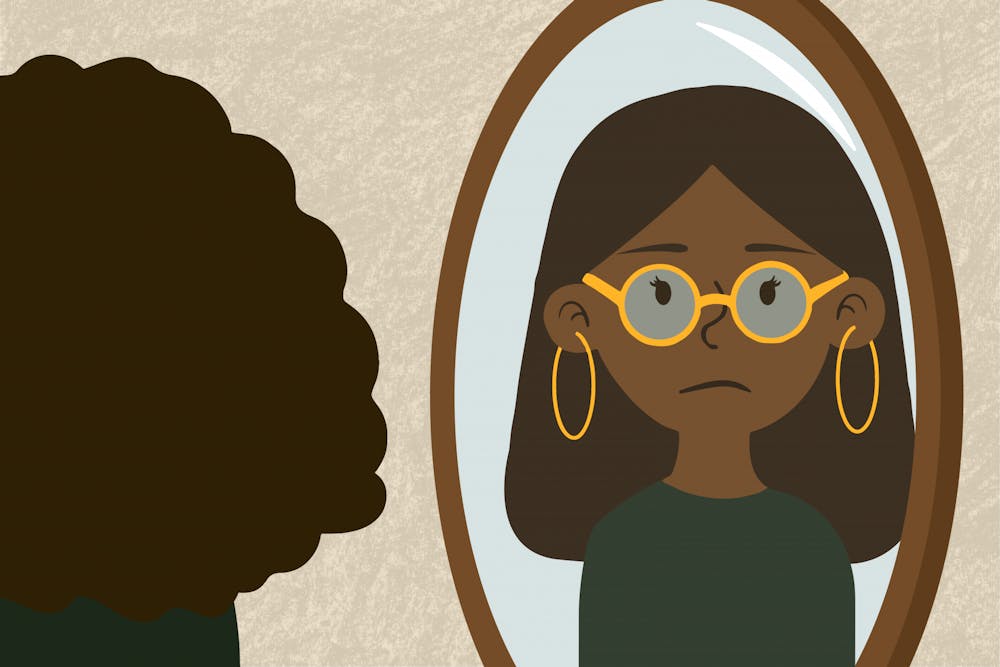Every racial, ethnic and cultural group, particularly those classified as people of color, are commonly subjected to dangerous and discriminatory stereotypes. If these stereotypes are maintained and continuously pushed, we will continue to live in a society where people judge others before getting to know them.
One problem that stems from this is inaccurate representations. Oftentimes, stereotypes are presented as a representation of different racial groups in the media.
In a study about how movies perpetuate racial stereotypes, DW found that Black men are viewed as "scary" and "angry" while Black women are seen as "loudmouthed" and "sassy."
"It is essential to recognize the diversity of experiences and perspectives within the Black community and avoid reducing characters to one-dimensional stereotypes," Odera Ezenna, a USC doctoral mass communications student, said in an email to The Daily Gamecock.
The study also found that in about 2,500 movies since 2000, the trope about Latino characters focused on sex appeal and the "Spicy Latina" trope of being loud and sassy.
Characters are frequently portrayed in media as stereotypes that contribute to the same narratives rather than as people with distinctive personalities and abilities.
"(I'm) fetishized as a Latina by my (white) employers," Sandra Martinez, a Yonsei University third-year sociology student, said in a text to The Daily Gamecock. "Once my boss told me that he really wanted to marry a Latina because they 'were fun and spicy.'"
This stereotyping can be seen across races. Some common themes among the Asian and Pacific Islander communities consist of topics surrounding weight and height, according to The Guardsman.
Incidents like these in the media frequently dismiss and erase people of color communities as a result of ignorance and false information.
"The stereotype of the historical Indian presents Indigenous peoples as solely part of the American past and stuck in anti-modern times," Evan Nooe, a Native American Studies Center historian and an assistant professor at USC Lancaster, said in an email to The Daily Gamecock.
Common stereotypes often create an erasure and displacement of Indigenous people in modern society, according to Nooe.
Indigenous people are frequently overlooked, which gives their media portrayal more room for inaccuracies. These types of stereotypes would be less prevalent if there were more accurate representations.
These stereotypes are also harmful as they create division and discrimination within people of color communities towards each other.
One example is the "model minority myth," which is aimed specifically at the Asian community. The model minority myth portrays all Asian Americans as intelligent and the less threatening person of color, according to Time.
This is harmful because it is a divisive belief that continues to further divide person of color communities and drives conflict within marginalized groups.
This myth looks at the success of one community and compares it to others. It also denies equal opportunity and perpetuates racial stereotypes that continue to impede equality
“Assuming Asian Americans are smart, successful, law-abiding, and hard-working may seem like a good thing because these are traits many of us would like to have. However, the reality is that this positive stereotype can lead to problems both for Asian Americans, who face unfair expectations … and for other racial minorities who face unfavorable comparisons to Asian Americans,” Cynthia Vinney, an expert writer in Psychology, Media Psychology, Mental Health Education, said in 'What is the Model Minority Myth?'
This myth creates unfair expectations for both the Asian Community and other people of color communities, which dismisses both personal experience and institutionalized obstacles.
"So much of the struggle we have gone through as an immigrant family is erased by the model minority stereotype," Komal Kaur, a third-year Yonsei University political science student, said.

The struggles some Asian families face are reduced and oftentimes erased by this myth, which is extremely harmful overall.
"The reason this stereotype has hurt me personally is because I come from a working class family that has lived a blue collar lifestyle for decades," Kaur said.
Due to these stereotypes, many struggles are disregarded and responded to carelessly. This is why it should be unacceptable for them to persist in today's society.
Poor treatment in the workplace is another issue brought on by these stereotypes.
Many people of color frequently receive lower pay, excessive work hours and/or experience microaggressions or workplace discrimination.
In an article for Cosmopolitan, the writer talked about her experiences at work, from getting made fun of for observing Ramadan to people questioning the professionalism behind her wearing her natural, textured hair.
Despite the fact that it is illegal by Title VII of the Civil Rights Act, one in four Black employees reported experiencing workplace discrimination in the previous year, according to a study done by Gallup.
Stereotypes also frequently lead to some being undervalued and overworked, like the Latinx and Hispanic communities.
“(Employment discrimination towards Latinx) creates obstacles that are difficult to overcome, such as economic disparities, unemployment, unsafe work conditions, unfair treatment, and no job advancement opportunities," Anali Crispin Ballesteros wrote in a research paper for St. Catherine University.
According to a recent poll conducted by NPR, the Robert Wood Johnson Foundation and the Harvard T.H. Chan School of Public Health, about one-third of Native Americans say they have faced discrimination in the workplace when applying for jobs, getting promotions or receiving equal pay.
These are just a few instances of the difficulties that various communities encounter in the workplace. If we want to achieve a society with equal opportunities, it is up to us to listen and take action.
Stereotypes about any racial, ethnic or cultural group are dangerous and discriminatory and should be dismissed overall. The more that these stereotypes are promoted, the more global advancements, accurate representation and equal opportunities will be compromised.

